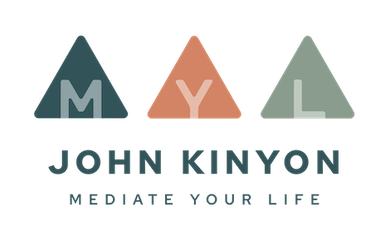Control
I believe we’re seeing in the world the inevitable effects of the temptation for us humans to use our intelligence to control – Nature, people, groups, nations, ourselves — and control so easily slides into domination, oppression, and exploitation. It’s inevitable what happens in the paradigm of separation and materialism in which we live. Control makes us feel safe in an uncertain, unpredictable and unsafe world, a world that is naturally wild and out of control. I can feel it so strongly inside of me: aspects of my life feeling uncertain and out of control, my mind and body freaking out, especially in the middle of the night, the intensity of wanting to be in control, to not feel this fear and insecurity, to not be so aware of my vulnerability.
The problem is that the more we control and insulate from fear, discomfort, and vulnerability, the more we are cut off from aliveness; and the more separate and disconnected, and ironically anxious, and depressed, we feel. The more we control the more we are cut off from empathy and care for others. With connection and aliveness come joy, peace, happiness, fulfillment, love, beauty, awe. But also what comes is the panic of vulnerability, the ability to be hurt, to suffer and die, to lose what we love in heartbreak. How willing am I to voluntarily choose the discomfort of not being in control in order to live into the world my heart yearns for and knows is possible? Courage is surrendering to the heart’s intuitive knowing and wisdom when other parts of us are desperate for comfort, safety and security.
I think this insight is at the heart of the “nonviolence” of Gandhi and King, illuminating the link between control and violence, and the transformative power of love standing for truth while relinquishing control over others and outcome. Am I willing to dissolve into connection with the wild energy of universal Need, let nature run free, focus on participation, mutuality, and contribution? When I’m feeling powerful anxiety or anger and the desire to control, can I let go and expand into a wider field of connection and the gift of Request, of giving and receiving beyond separateness and the separate self?
To go deeper into ideas related to control and separateness in this context, I recommend Charles Eisenstein, and his book The More Beautiful World Our Hearts Know is Possible.

I appreciate the wisdom and power in this post, John. I’ve been thinking recently about the inherent connection among control, surrender, and agency, that maybe there is a helpful tension that helps keep these expressions or behaviors in balance.
John:
Thanks for your post.
I think because there is usually/always a future, when we are alive/conscious, there will always/probably be, some level of the unknown, thus arise our feeling of anxiety; we do not know what will happen in the next second, 2 seconds, etc. All of us have universal needs. I suspect, we all have the need of well-being which includes our safety and security which, is Maslow’s 1st need, safety.
Having increased predictability and dependability within our environment, then provides increased safety. I then wonder, if because humans have free will, it would be normal/natural for humans to try and exert control over one’s environment to increase one’s reliability and dependability, which thus creates more safety. When a certain level of safety for that person is reached, which is idiosyncratic for each of us, based on multiple factors such as one’s physical health, mental stability, early attachment relationships to the parents, sibling relationships, peer relationships, educational opportunities, religious/spiritual, type and amount of one’s trauma history, influences,…………. then, one, to strive for higher needs; again per Maslow’s hierarchy of needs.
I wonder if the increased ability to consciously “give and receive,” may be related to how well a person is able to both understand how one’s strategies conflict, with another person or persons strategies, in a given situation, which has resulted from these different strategies attempting to meet dissimilar needs of the 2 parties, during that event/moment in time?
I wonder if, through/by, an increased understanding of this dynamic, this, then, results in a lessening of one’s degree of needed perceived predictability, which is based on reliability and dependability? I wonder to the degree that this dynamic can be understood, then frees the individual from some of his/her anxiety, and a lessening of one’s need to control?
I think was it not Socrates, who had the saying, “Know thyself”………………?
Chuck
Thank you for this comment Mary!
Thanks Chuck for offering this depth of reflection on this.